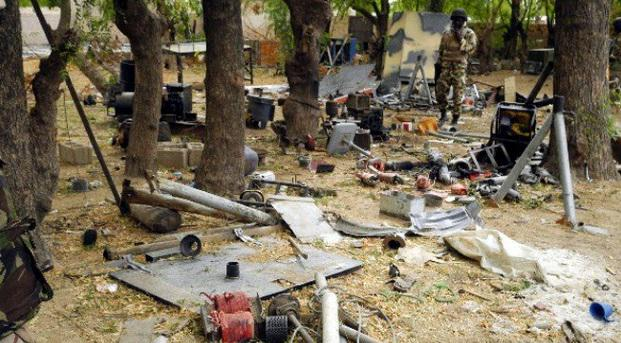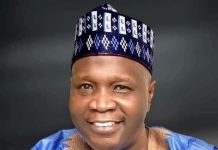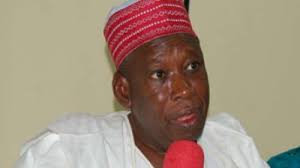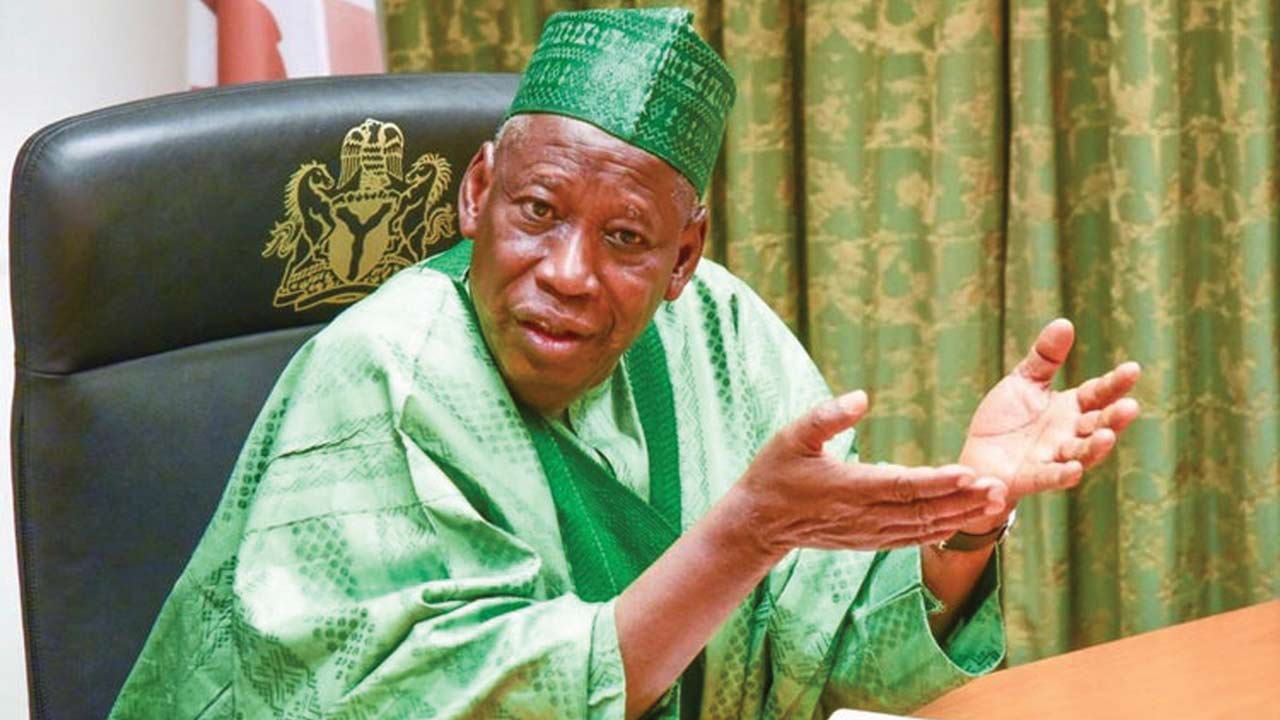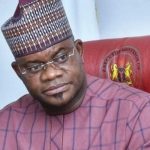A factional President of the Nigeria Labour Congress (NLC), Mr. Joe Ajaero has said that his faction supported the removal of fuel subsidy few months back to restore sanity to the sector.
He also speaks on the crisis in labour union, Nigerian economy. Like many who participated in the 2014 National Conference, Mr. Ajaero holds a strong view that the Buhari government needs to examine the report, saying that most issues bedeviling the nation now are well addressed in the 2014 National Conference. He spoke with Oladipupo Awojobi.
It is no longer news that the NLC is factionalised, what efforts are the leaders making to ensure that labour has a common voice in Nigeria?

I wouldn’t say we are making efforts to resolve it. The veterans have been trying to mediate, uptill now nothing has come out of it, and we have not had any meeting for some time now. We are still hoping that the crisis would still come to an end.
Can we say the Federal Government aggravated the matter as the past government tended to relate with the Ayuba Wabba-led faction of the NLC, while the present government is relating with Joe Ajero-led faction?
If you look at what happened, you would notice that it was not the fault of the Federal Government. NUPENG is in my group, and then Ayuba Wabba wanted to represent them and they said no. You cannot leave the issue that affects one group and ask another group to address them. Concerning the failed strike action, when the Federal Government removed fuel subsidy, if you have an issue to address, the people concerned should be carried along. Ayuba Wabba should have allowed the Federal Government to meet with everybody as they planned, he said, he was not going to meet with our group. The Federal Government wanted to bring us together, but the Waba-led faction of the NLC, had expressed opposition at the previous meeting, so the government invited us. Even market women, religious associations and others were invited to the previous meeting on fuel scarcity. No labour leader had the right to determine on the issue of fuel crisis that affected everybody, we could not decide who they should invite. At that point, the Ayuba-Wabba led faction of the NLC had given notice about a strike action on Wednesday. They had a meeting on Monday, I was at another meeting and we finished on Tuesday morning. If he didn’t have confidence in me to meet with me, we couldn’t be at the picketing ground with them. Those, who felt I should have joined them in the strike action got it wrong. I was not at the meeting, where they agreed to start the strike on Wednesday and they never consulted me. So, I was no under obligation to join them, if they knew the capacity of my group no matter how small they were, they should have carried us along. This is not the first time it would happen in labour, infact the Trade Union Congress (TUC) was not with them, TUC is not NLC. We should all have agreed, but he decided to go that way. I had an agreement with the Federal Government on some key issues and they convinced me and I told them this was what we should do at that time.
Your faction supported the fuel price increase or the plan of the Federal Government to. allow the market forces to control oil price. Was your action right based on the current economic crises in the country and the fact that minimum wage has not been increased?
The action we took was the best in that circumstance. The issue of increase in pump price was the best because fuel was being sold as much as N220 per litre in some places in the country. Then, they announced N145, the first thing to do was to look at the things around it. The late lawyer and human rights activist, Mr. Bamidele Atiru had gone to court before that time and got a ruling that it was only the Petroleum Products Pricing Regulatory Agency (PPPRA) that had the right to increase the price of fuel and that the Federal Government or any other body had no right to do so. I went into that meeting with a full knowledge that the PPPRA was not in existence then and with the full knowledge of the ruling of the court then and I know that even if the Federal Government now says fuel price is now N20 per litre, it was still illegal. We agreed that the board of the PPPRA would be formed within a short period, labour and the essence of re-constituting the board was to determine the price of fuel, but some people didn’t read between the lines since they had made up their minds to go ahead with the strike action. After that, they announced the board of PPPRA within 48 hours. I didn’t say I should be part of the board. We also agreed on the issue of palliatives, and over N500 Billion was earmarked for that purpose and included as part of the budget. We then agreed to form a palliative committee, where labour would also be represented so that it would not be like the SURE-P issue. We also agreed to form a committee on the negotiation of minimum wage to look at the reality on ground and the committee is still working, they even met recently and they would soon meet again. We are well represented in the committee as they would report back to us and we will take appropriate action. So, we had no cause to go on the streets to protest and I said it that any strike called from Monday to Wednesday at that time was bound to fail because there was no preparation or mobilisation. We held meetings with Non-Governmental Organisations (NGOs), human rights groups, National Association of Nigerian Students (NANS), market women and we infiltrated all campuses and I said I was not going to be part of the strike action. Apart from being a trade unionist, I studied labor and strike management, and I said I would not be part of it. In those days of labour, we used to mobilise people with pamphlets and did enough sensitization before embarking on any strike action. Also, we have a government that got to power through a kind of populist mantra called; change. Few months after they got to power, you want to go on strike and you have not engaged them by getting the people to see the other way. You have a situation, where people were buying fuel for N180 or N200 and they said they should come and buy the fuel for N145 and you asked them not to go and buy or not to go to the filling stations. Moreso, you did not get their support to speak on their behalf. If you want to do anything like that, you need to find time to address them, it is not a question of going to the streets with a strike action.
Let us talk about the government of President Muhammadu Buhari with all the economic crises that have led to sack of many workers. How would you describe the government as everything is so expensive now?
I am a bit worried that workers are being sacked in private organisations and the economy is not improving. I still don’t know the focus of the government of President Buhari to enable us do a proper critic of the government. I don’t know their plans on education, economy, health and the rest. I would be able to talk better if I have an idea about these. Time is of essence, they came with a plan for change and they knew things were so bad in the country. May be he still needs more time and if he needs more time, he needs to work fast. If that is the case, there is a problem, For instance, you leave the power sector to the dynamics of the system without the intervention of the government, then there is a problem. I wasn’t participating much in labour for the first four years, when Abdulwaheed Omar took over as the NLC president, but I became a deputy president of the NLC in the last four years of his government. I was involved, and it got to a stage that the government paid N3 Million into each of our accounts, but I said I didn’t want and I returned it to them. I wasn’t trained that way, I had been activist for long and since then Omar didn’t want me to take over from him as he said I would probe him if I took over power from him. So, when his tenure ended, we said we would rotate the power between the private and public sectors. Comrade Adams Oshiomhole came from the private sector, while Omar came from teaching in the public sector. So, we agreed that the presidency would go to the private sector first after that, where I came from. We now zoned the offices, nine offices were given to the public sector since they were not producing the president, including the office of the treasurer. The sector producing the presidency, the private sector, was given seven and we left. After that, we bought nomination forms. But in the publication of the names, we discovered that somebody from the public sector still went ahead to pick a form for the presidency. As at that time, the office of the treasurer was unopposed. During the election proper, they did so many things by manipulating the ballot papers. At the point of voting, they were stuffing ballot papers and as they were stuffing they were counting. It took us three days to count 3,000 votes. Prior to that time, the Federal Government had mobilised several policemen to the venue and my agent was attacked and electricity went off at the Eagles Square venue that we were using whereas the place was not using public power supply, so it was not that electricity was seized by electricity company in-charge of the area. They did this so that they could do their manipulations and they succeeded. There were protests here and there and we left the venue, only for them to announce that somebody had won the election. So, we had to organise our own election in Lagos State here because of what they did then. Nobody had addressed all what they did during the election, when they manipulated the ballot papers, all what they are saying is that we should come together. That is the issue that has been discussed all over. Nobody is addressing the fact that the number of votes they announced was more than the number of delegates. That is why we are still where we are today. We had a similar problem in 1988, when Ali Ciroma and his opponent wanted to take over the secretariat as they had crisis over, who would take over as the NLC President then and the then government of Gen. Ibrahim Babangida proscribed labour. When this one happened, it would not cost me anything to say I want to take over the secretariat of the NLC. But the then government had said that I gave then problem on the issue of privatisation of power generation and so they were willing to do anything to get me out of the way, and before then I had survived assassination attempts. So the best thing for me and my colleagues to do then was to withdraw and we are doing our best in defending the rights of every worker and the unions that are within our group.
We have handled so many issues and so many of our unions are from the private sector.
Would you ask President Buhari to jettison the reports of the 2014 National Conference?
I was part of the conference and the reports are very rich. I served in the energy committee of the conference and if you go through the report, you would see a lot of useful proposals there. It wasn’t all about politics, the conference addressed a lot on the economy, industrial relations and energy. The government could set up a committee to review the report and see what could be done. They may not adopt the whole reports, they can just pick the ones that are useful. The conference cost Nigeria a lot of manpower, time and money. Rather than organising another one, we could go back to that report. That conference report provides an agenda for our political issues. We should go back to the reports quickly.
What do you think should be done about electricity in Nigeria?
When you apply a wrong medication to an ailment, you would not get any result. Privatisation is not the solution to the Nigerian electricity problem, but it was applied. But since then, the government has not thought it wise to review it or intervene, then what can someone do. The government can even call a national summit on the power sector and let the operators talk about their challenges. It is assumed that every one million people would need 1,000 megawatts of electricity, but now a population of 170 million people share only 3,000 megawatts of electricity. Compare this to South Africa that generates 45,000 megawatts for a population of 43 million people, which is the world standard. Now, nobody wants to sit down and consider where we are going to be in the next four or five years. Now, new houses are being built everyday, and connections are being made. This year, we have not added even 100 megawatts, we are fluctuating between 2,000 and 3,000 megawatts. I have stopped talking, the tariff they are fighting over would increase even if the supply doesn’t increase. I sent a report to the National Conference that privatisation is public disaster and private gain. If the power situation in Nigeria goes down to 1,000 megawatts, if the electricity companies are making N12 Billion, they would still make it because it is the market that has been captured. The market sector does not respond to market dynamics. Now, we are over depending on gas power plant whereas this ought to be for emergency as it is done all over the world. You have 80% dependence on gas and you say it is not working because pipelines were vandalised. The pipelines were vandalised because we are building political pipelines. If I am from Lagos State for instance, and I build a power plant in the state with gas pipelines from Bayelsa State, do you think you can police it effectively?. We have never really come up with a solution to the problem. They don’t listen to useful contribution and they would continue to make mistakes until something critical is done.


